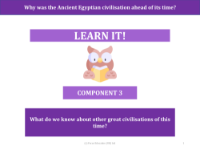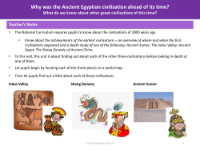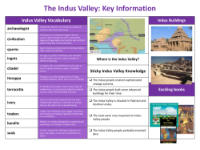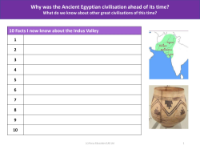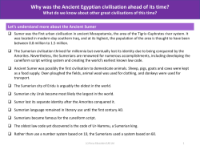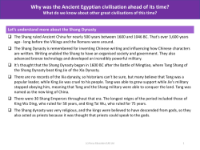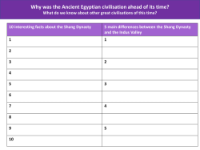Why were the Ancient Sumer considered a great civilisation? - Writing task
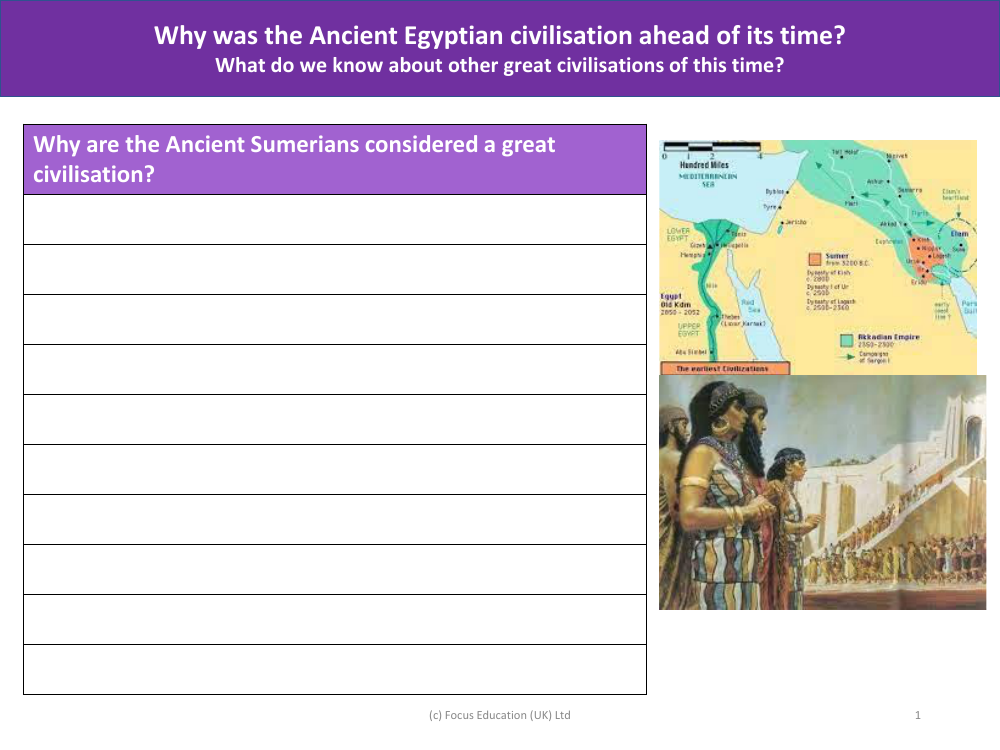
History Resource Description
The Ancient Sumerians are regarded as a great civilisation due to their numerous contributions to human development and culture. Situated in the southern part of Mesopotamia, they thrived between the 4th and 3rd millennium BCE. One of their most significant achievements was the creation of one of the earliest known writing systems, cuneiform, which allowed for the recording of laws, trade transactions, and literature. Moreover, they are credited with pioneering advances in agriculture, such as irrigation systems that enhanced crop yields, and they established the concept of the city-state, each with its own distinct governance and deity. Their ziggurats, large and impressive temple complexes, stand as testaments to their architectural and religious innovations. The Sumerians also made strides in mathematics and astronomy, laying the groundwork for future civilisations.
Similarly, the Ancient Egyptian civilisation, which flourished along the banks of the Nile River, was ahead of its time due to its remarkable achievements in various fields. The Egyptians excelled in engineering and construction, as evidenced by the iconic pyramids, which were marvels of ancient architecture. Their advancements in medicine were profound, with practices and treatments that were sophisticated for their era. The Egyptians also developed a calendar system to predict the Nile's flooding, which was crucial for their agriculture. In addition to these, they had a complex social organisation and a rich cultural heritage that included hieroglyphics, art, and mythology. Other great civilisations of the time, like the Indus Valley and the Minoans, also made significant contributions in urban planning, trade, and cultural development, showcasing the remarkable ingenuity of ancient societies.
